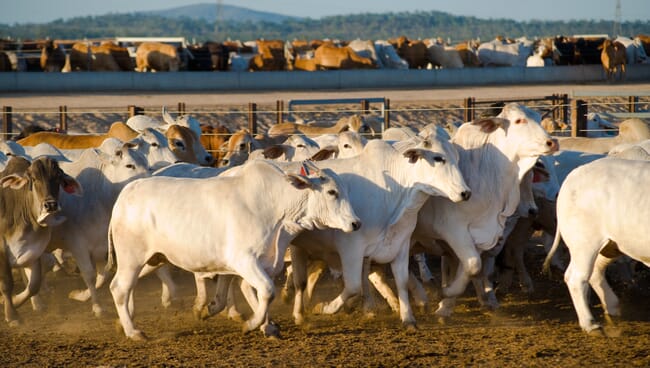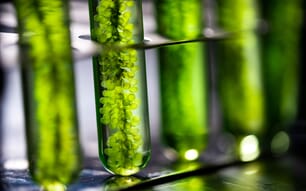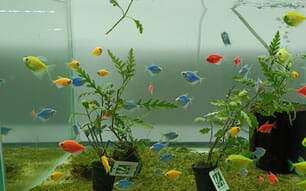Ruminants are responsible for a large proportion of agricultural greenhouse gas emissions in the form of methane, and a number of recent research projects have investigated how the inclusion of red seaweed species, in particular of the Asparagopsis family, can significantly reduce methane emissions.

This latest study, led by researchers at CSIRO, suggests that the methane-reducing impact of diets containing Asparagopsis is even greater than first thought.
The study involved the addition of Asparagopsis taxiformis to the diets of beef cattle in feedlots that are fed a high grain diet. Asparagopsis was included in the feed of Brahman-Angus cross steers at 0.00 percent, 0.05 percent, 0.10 percent, and 0.20 percent of feed organic matter. Emissions were monitored in respiration chambers fortnightly over 90 days – which represents a typical feedlot finishing period.
Steers were weighed weekly prior to feeding, feed intake was monitored daily, rumen fluid samples were collected in conjunction with respiration chambers for assessment of rumen function and faeces were collected for bromoform residue analysis. Moreover, meat, organ, and fat were collected post-slaughter for residue analysis and sensory evaluation.
The study showed that the methane produced by steers receiving 0.10 percent and 0.20 percent Asparagopsis in their diets reduced by 40 percent and 98 percent respectively. While these groups experienced weight gain improvements of 53 percent and 42 percent, respectively too.
It also revealed that there was no negative effect on daily feed intake, feed conversion efficiencies, or rumen function, while no residues or changes in the quality of the meat were detected by a tasting panel.
As a result, the researchers conclude that “commercial production of Asparagopsis could create new economies, and with low inclusion rates of this seaweed in ruminant diets the industry has the potential to revolutionize management of greenhouse gas emissions across the ruminant livestock sector with complementary benefits to the environment, and economy of the wider agriculture sector.”
Looking ahead, they also suggest that “improvements in Asparagopsis quality through optimal cultivation and processing would further reduce effective inclusion level, exposure to excess minerals, and optimize the supply chain.”
There are currently a number of companies attempting to achieve this, including Hawaii-based Symbrosia – an interview with whom is due to feature on The Fish Site within the next week.
Further information
The results of the study, which has been published in the Journal of Cleaner Production, under the title, ‘Mitigating the carbon footprint and improving productivity of ruminant livestock agriculture using a red seaweed,’ can be accessed in full here.



